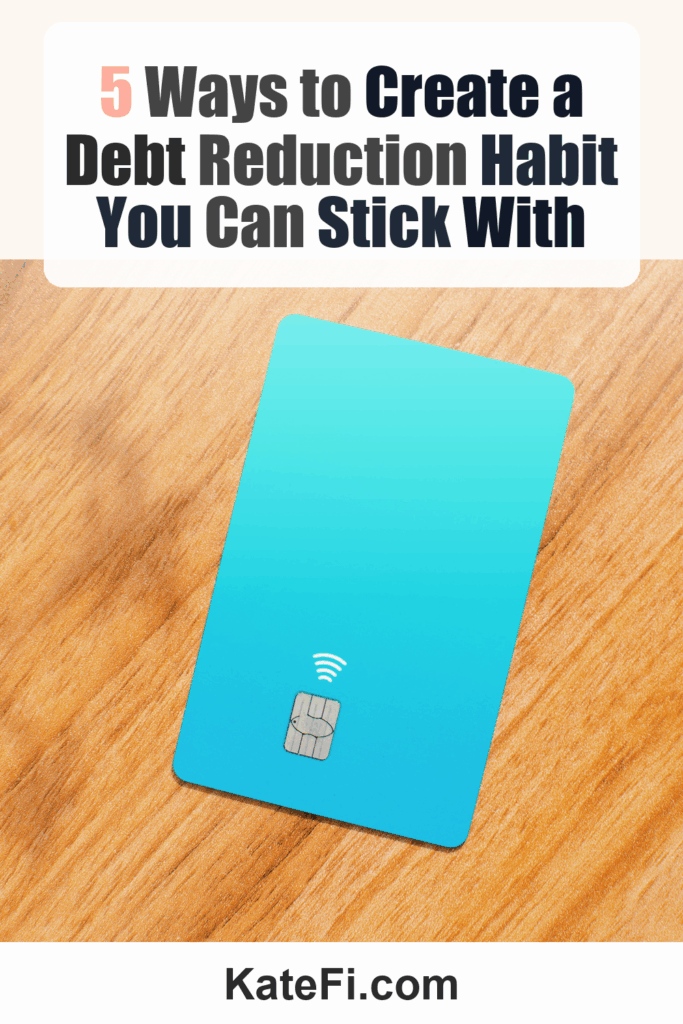How to Stay Motivated While Paying Off Debt: 7 Tips
Paying off debt can feel like an uphill battle. As interest rates climb and fees accumulate, it may seem like you’re caught in a never-ending cycle. The good news is that with the right strategies, you can break free from this cycle and regain control of your finances. Staying motivated throughout this journey is crucial, and we’re here to guide you through effective steps to help you keep that motivation alive while you tackle your debt.
Love our content? Show your support by following us — pretty please!🥺
FOLLOW ON PINTEREST
Hi! I’m Kate, the face behind KateFi.com—a blog all about making life easier and more affordable.
The Snowball Effect of Debt
What You’ll Learn on the Call
- Estimated timeline and monthly payment range
- How credit may be affected in the short term
- What documents to gather to move faster
Not available in IL, KS, OR, TN, UT, WV.
Before diving into the tips, it’s important to understand how interest and fees can snowball, making debt seem insurmountable. Each month that you carry a balance, interest accumulates, and if you only make minimum payments, most of your payment goes towards the interest rather than reducing the principal balance. This is why a solid repayment strategy is critical.
Consider this scenario: you owe $5,000 at an interest rate of 18%. If you only pay the minimum of $150 a month, you’ll not only spend years paying it off, but you’ll also end up shelling out an extra $2,000 in interest. That’s a staggering $7,000 in total! The earlier you take action, the easier it will be to slow down the snowball effect of fees and interest.
So, what’s the best way to stay motivated? Let’s explore 7 actionable tips.
Tip 1: Set Clear Goals
Setting specific, measurable, and achievable goals will give you a clear target to work towards. Instead of a vague goal like “I want to pay off my debt,” consider something like, “I want to pay off $1,000 in three months.” Break down larger goals into smaller, manageable milestones.
Checklist for Goal Setting:
- [ ] Write down your total debt amount.
- [ ] Break it into smaller monthly goals.
- [ ] Create a timeline for each goal.
- [ ] Celebrate small victories (like paying off a bill!).
Tip 2: Create a Debt Repayment Plan
Your strategy will determine your success. When considering repayment methods, you have three primary options: Debt Settlement, Debt Management Plans (DMP), and Debt Consolidation. Each option has its pros and cons, so it’s vital to assess which one aligns best with your financial situation.
Here’s a quick comparison table to help you decide:
| Method | Description | Pros | Cons |
|---|---|---|---|
| Debt Settlement | Negotiating with creditors to reduce total owed | Potentially lower payoff amount | May affect credit score |
| Debt Management Plan (DMP) | Working with a credit counseling agency to manage payments | Simplified payments and interest reduction | Possible fees involved |
| Debt Consolidation | Combining multiple debts into one loan | Single payment, often lower interest | Risk of higher overall cost if not managed well |
Choosing the right option can drastically affect your payoff journey. If you’re uncertain about which route to take, getting a free consultation can provide you with personalized guidance.
✅ See If You Qualify for Debt Relief
Tip 3: Track Your Progress
Visualizing your progress can be incredibly motivating. Whether you create a debt repayment spreadsheet, use an app, or simply write it down, seeing the numbers decrease will provide tangible proof that your hard work is paying off.
Script for Daily Check-Ins:
- “Today, I’m going to check my budget and see how much extra I can put towards my debt.”
- “I’m going to look at my goals and track my progress weekly to stay on target.”
Tip 4: Reduce Unnecessary Expenses
To free up extra cash for debt repayment, evaluate your spending habits. Are there subscriptions you can cancel? Can you dine out less? Use the savings you find to make extra payments on your debt. The faster you pay down your debt, the less you’ll pay in interest.
Practical Checklist:
- [ ] Review monthly subscriptions.
- [ ] Cut out one luxury item (like takeout).
- [ ] Allocate the savings directly to debt.
Tip 5: Stay Educated and Informed
Knowledge is power. The more you understand about your debt and the financial system, the better decisions you can make. There are many resources available, from online courses to personal finance blogs, which can offer tips and strategies.
Consider connecting with communities, forums, or social media groups focused on debt payoff journeys. Sharing your struggles and successes can be a great source of motivation.
Tip 6: Create a Support System
Engaging friends or family members in your journey can be beneficial. Let them know about your goals and how they can support you. Whether it’s encouraging words or accountability check-ins, having a support system can keep you on track.
Checklist for Building a Support System:
- [ ] Identify at least one person to share your goals with.
- [ ] Schedule weekly or monthly check-ins to discuss progress.
- [ ] Consider joining a support group focused on debt repayment.
Tip 7: Consider Professional Help
When the burden of debt feels overwhelming, consider reaching out to professionals. Debt relief companies offer services that can help manage your debt effectively. A free consultation with a debt specialist can provide insights tailored to your specific situation.
Important Documents to Gather for a Faster Review:
- List of all debts, including amounts and interest rates.
- Recent statements from creditors.
- Your monthly income and expenses.
Understanding how to navigate these options can alleviate some of the stress associated with debt repayment.
✅ See If You Qualify for Debt Relief
Final Thoughts
Staying motivated while paying off debt is challenging, but it’s absolutely achievable. By setting clear goals, tracking your progress, and creating a support system, you can keep yourself on the path to financial freedom. Remember, every small step counts, and with determination and the right strategies, you can reduce the snowball effect of interest and fees.
If you feel overwhelmed by your current debt situation or need guidance on the best options available, consider getting a free consultation with a debt specialist. They can help you assess your options and find a path that works for you.
Important: This content is for education only—not legal, tax, or financial advice. Results and eligible programs vary by situation and state. Fees apply if you enroll and complete a program. Debt relief can affect credit; missed payments may lead to collections/lawsuits. Not available in IL, KS, OR, TN, UT, WV.
Taking the first step towards financial freedom starts with motivation and education. You’re not alone in this journey; seek help and resources that can guide you. With persistence and the right strategies, you can achieve the financial freedom you desire!






















